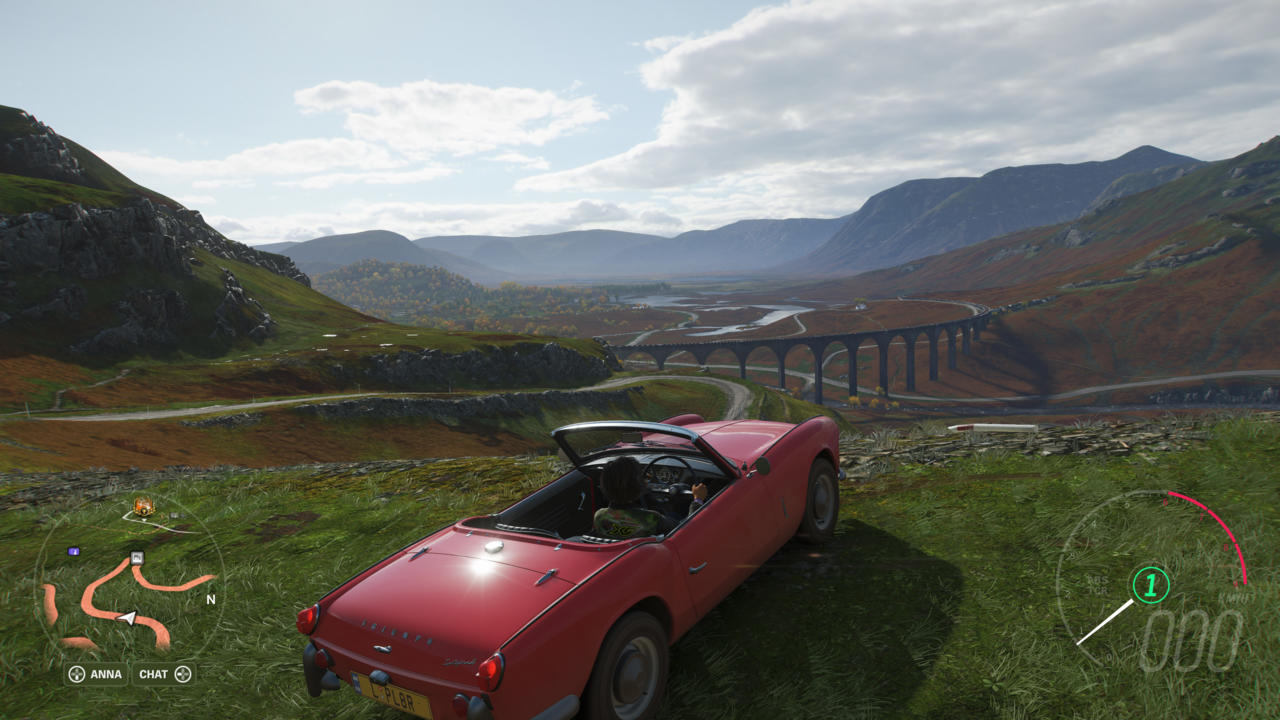Connect with us
Published
6 years agoon
By

By Edmond Tran
Forza Horizon is a series that has always managed to deftly balance accessibility and complexity. It takes the realistic driving mechanics of









But the biggest change to Horizon is the introduction of seasons. Horizon’s Britain cycles between summer, autumn, winter, and spring–and the weather in each season affects the world in tangible ways. These range from the obvious, like bodies of water freezing over, to the near-imperceptible, like the change in temperature affecting your tires. But seasons truly require you to adapt both your technique and your vehicle, and this variety produces a unique dynamic–the same dirt course you drive in summer will be boggy after an autumn rain, and asphalt roads will get slicker during the winter snow. In the first few hours of Horizon 4, the seasons will change after you’ve completed a number of activities, and this quick cycle reveals how necessary it is to consider and adjust your driving. But once you complete a whole cycle, the implementation of seasons changes: They’ll then be tied to an online server, synchronized for all players, and will rotate every seven days.
Online functionality has a larger emphasis in Horizon 4–when playing solo, the game will discreetly connect you into an online session with up to 72 other players. You can also form a convoy of up to 12 people, as well as compete in ranked or unranked team adventures for seasonal prizes. It’s still easy to focus on playing solo at your own pace, and you can still go offline completely and drive against AI. But Horizon 4’s expanded online functionality does offer worthwhile activities to encourage you to connect with other people. Head-to-head races are more interesting against actual human beings, and the weekly change in weather comes with a selection of limited-time, season-specific races and championships as well as challenge missions.











Horizon also features recurring “#Forzathon Live” public events, which puts the call out to players in a session to gather together and cooperate to hit a combined score pool in a certain activity. You’ll earn currency to spend in an exclusive Forzathon shop if you’re successful, but these events become tedious quickly, as you’ll be running the same activity–like a single drift zone or danger jump–repeatedly until the group hits the score target.
But the missed opportunity of Forzathon Live events is just a tiny scuff in Horizon’s otherwise comprehensive and inviting gamut of activities. Irrespective of online seasonal events, there are a large number of vehicular disciplines to pursue, the majority of which allow you the great flexibility of shaping a race around your vehicle of choice–though you’ll still need to use your best cars to perform well in things like speed and drift challenges. You’re also now able to create your own custom courses, and the series’ more creative pursuits return with story missions–which feature things like stunt driving and nice homages to other racing games–and the entertaining, if highly choreographed, showcase races against things like planes, trains, and Halo‘s Warthogs.
Progression has changed from Forza Horizon 3–you no longer expand multiple festival sites to uncover activities. Instead, each discipline has its own corresponding progression meter. Participating in a particular kind of activity enough times, win or lose, will eventually level up that discipline, reward you, and unlock more activities of that kind on the map. It’s an exciting and friendly system that stretches you out to the furthest reaches of the world quickly, makes it feel like something new and interesting to do is always nearby, and rewards you no matter what you decide to participate in and how you perform. Even after hours and hours of play, Horizon 4 kept revealing surprises by introducing brand-new styles of activities, keeping the game’s flow feeling fresh.
It always feels like there’s a reward in reach, too. With both individual meters for disciplines and an overall progression meter, you’re often just a couple more races away from earning a level-up prize. The slot machine-style wheelspins also return, now with a variant that lets you pull for three prizes, and thankfully they still remain siloed from any real-world monetary transactions. Horizon 4 has a larger variety of potential rewards, too. The bigger focus on online interactions means driver customization is a big deal, which throws hundreds of unisex clothing options, quick chat phrases, and dance emotes into the pool. This means you might occasionally get a boring prize like a pair of shoes, but the pace of compensation is steady enough to make this negligible and also makes the rare occasion of nabbing a free car all the more satisfying.











Horizon 4 boasts 100 more vehicles over its predecessor, with a total of 450 in the base game. While Japanese car enthusiasts will definitely notice the absence of Mitsubishi and Toyota vehicles (no more Initial D Sprinter), Volkswagen has held over from Motorsport 7 (bringing classic Beetles, Kombis, and Golfs), as have a few new vehicles like racing trucks. Once again, Horizon features an array of tinkering options for enthusiasts, as well as auto-upgrade options and a number of accommodating driving assists for those who’d rather only think about accelerating and turning.
Regardless of how you drive, vehicles feel weighty, handle believably, and each one now has its own individual perk tree. Earning skill points while performing both reckless and prudent driving maneuvers will allow you to unlock nodes that add buffs to your skill point accumulation, or earn one-off rewards like wheelspins or influence (the game’s experience measure). It’s a great change from Horizons 3’s global skill tree, because it encourages you to stick with a vehicle, get to know it intimately, and have the advantage of a higher rate of reward. Skill points come readily if you’re driving at least somewhat competently, and you’re free to use points you earn on any vehicle, which makes swapping your go-to car less of a blow to your progression if you’ve already banked some extra points.
Horizon’s global perks have been transferred to another new feature, Properties, which replace festival sites as your garage and customization hubs. Finding and buying properties around the map is relatively expensive, but the perks some contain are useful, and properties all act as valuable fast travel points. Fast travel still costs you in-game currency, at least until you find and break all 50 fast-travel boards, but Horizon 4 does make other very welcome improvements in the interest of accessibility and quality of life, including the ability to change cars for free and at any time.
There’s such a diverse range of activities stuffed into every corner of Horizon 4, and meaningful changes contribute to smart driving dynamics and a more consistent sense of achievement. Everything you do in Horizon feels valuable, no matter how big or small–from the basic thrills of speeding a fast car down a gorgeous mountain highway to spending time tinkering with your favorite ride to manage seasonal road conditions to just hanging out with friends and strangers online and goofing off in friendly games. The charm of the Horizon series is as palpable as ever, a winning, all-inclusive recipe that celebrates the joy of driving above all else.
Source:: Gamespot – Reviews

You must be logged in to post a comment Login